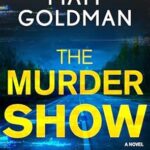“That Houdini job!”
25th September 2014
On a phone call with my publisher, the subject of Houdini came up. An idea started putting itself together: a series of books for middle grade readers, in which the boy Houdini would investigate thrilling mysteries using his tricks, his wits and, most of all, his emerging escapological skills. The real Houdini devoted much of his adult life to debunking spiritual hoaxes on behalf of his fellow-man; maybe that same drive could motivate him as a fearless boy investigator?
I knew a fair bit about Houdini. I knew that he emigrated from Budapest to Wisconsin, USA when he was four, and grew up relatively peacefully with his family. No known records of derring-do or mystery-solving. But I also remembered reading a biography of the great man by William Kalush and Larry Sloman, in which it’s argued that the grown-up Houdini had a double life as a spy. “The Secret Life of Houdini”, that biography is called. I started wondering; perhaps Houdini could have had another secret life too, one that happened in his childhood? What if the few facts we know of Houdini’s early years—Wisconsin, the peaceful childhood—turned out to have been a cover-up, devised later in order to conceal a far more thrilling and dangerous truth?
I started to invent an “alternative history”; a series of events that didn’t happen but which, just possibly, might have done. I moved some dates about. My Houdini leaves Budapest for America a little later, when he’s ten years old, and under mysterious circumstances which he doesn’t understand; most importantly, he gets separated from his family on the way. He’s on his own when my story begins, struggling to make a living as a shoeshiner on the streets of New York, and it’s there that his emerging skills of illusion and escape get him swept up in a series of mysterious and frightening investigations—all in the service of a secretive international organization, The Order Of The White Crow. My Harry, together with two friends called Billie and Arthur, ends up travelling across late 19th century America and Europe, solving mysteries and defeating notorious criminals—at some point in the future, maybe he’ll arrive back in Budapest, and delve into the secret of what happened to Harry’s family to make them flee to America? Whatever happens, when it all gets wrapped up, there’ll be a neat scene in which my Harry will be handed his “cover story”, a convincing tale of how he grew up in Wisconsin, USA with his family, with no hint of mystery at all…
All fiction, of course. I’m absolutely not claiming this actually happened—just having fun with the idea that it might have done. Lots of writers do this. While I was drafting the books, a film called Abraham Lincoln: Vampire Hunter came out which, if they ever took it seriously, would cause a lot of American historians some distress. More to the point, Houdini himself did a fair amount of tinkering with his life’s events. He claimed he was born on American soil, not in Hungary at all, in order to portray himself as a patriot; and of course he was brilliant at creating intrigue around the secrets behind his extraordinary tricks. Most interestingly to me, he once hired H. P. Lovecraft, the famous American science fiction writer, to write-up a story about what had “happened” to him on a visit to Cairo. The story of this collaboration is brilliantly told in Ken Silverman’s biography HOUDINI!!!—but, basically, Houdini spun Lovecraft’s editors a tale in which he had been kidnapped by a “band of Bedouins” and then imprisoned inside a Saharan crypt, where he had even more terrible experiences, including one with some weird supernatural beast. Lovecraft got the job of writing it all up and, if you read Under The Pyramids now, you can tell he didn’t find it easy making his own “alternative history” of Houdini: trying to set it all up realistically and then plunging the great man into a tomb with pillars “that dwarfed the Eiffel Tower” and then describing his hero’s encounter with “the horror that was stalking million-footed through gigantic hypostyles of inhuman dread.” “BOY! That Houdini job! It strained me to the limit!” wailed Lovecraft in his correspondence—but Houdini was apparently very pleased with the result.
And so would he really have been too troubled by the thought of another writer inventing another alternative history of him—nearly a hundred years after his death? As long as it was suitably spectacular and pulse-racing, I think not…
YOUNG HOUDINI: THE MAGICIAN’S FIRE is published by Sourcebooks Jabberwocky in the US and by OUP in the UK and rest of the world.
(Click on the book cover to order a copy)










I can’t wait to read this book.